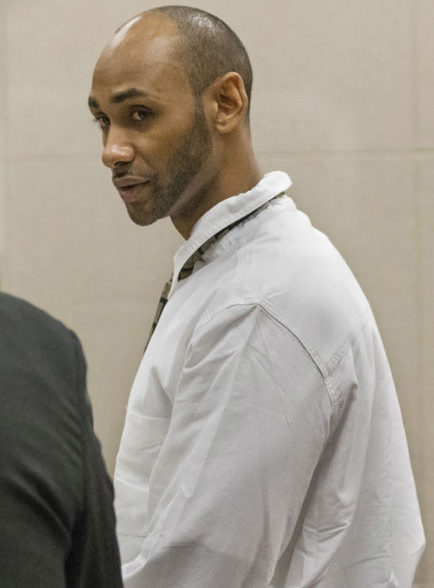
Attorneys for the state of Florida are exhausting all avenues in a West Palm Beach appeals court after a three-judge panel overturned the conviction of Henry Lee Jones for the November 2011 shooting death of Central Beach resident Brian Simpson.
Last Thursday, Assistant Attorney General Mark Hamel filed a motion for rehearing in response to an April 12 opinion which concluded that Judge Robert Pegg erred in shutting down a public defender’s line of questioning during jury selection that would have polled jurors about the case involving a white victim and a black defendant.
Chief Assistant State Attorney Tom Bakkedahl said he objected to the questions because the case was not about race, arguing that because Simpson was shot and killed after interrupting a burglary of his home in progress and fighting back against the intruders, there were no racial overtones in what was a “crime of opportunity.”
Hamel contended in his motion for a rehearing that the appeals court misunderstood what actually happened, and that the defense attorney was not, in fact, barred from pursuing a line of questioning that might uncover juror prejudice or bias related to interracial violence. Hamel’s position will likely send judges back to pore over the verbatim transcript of jury selection to closely examine the exchange that led up to Pegg’s ruling, which halted the line of questioning.
“When the prosecutor objected, defense counsel was about to mention the race of the victim and was not in the process of asking a question. The prosecutor objected because the prosecutor interpreted the remark as a suggestion that racism was involved in the charged crimes. The trial court understood the prosecutor’s concern and ruled accordingly,” Hamel argued.
In other words, Hamel argued that Pegg would have allowed a narrow line of questioning on interracial violence specifically aimed at ferreting out bias or racism, but that the defense attorney did not ask those questions. She did, however, according to court records, request to strike the jury after it was seated, based partially upon not being able to ask the questions about black-on-white crime. Hamel suggests the defense attorney is the one who erred in representing her client.
“Defense counsel’s response to the objection did not specifically assert that the defense was seeking to uncover any bias of prejudices held by prospective jurors. Instead, defense counsel asserted that ‘historically’ jurors tend to be impacted by interracial crime and therefore it was a legitimate issue to bring up.”
Public Defender Diamond Litty said last week she stands by her office’s handling of the case and the position that the attorney was barred from asking the questions – the position that won the appeal and reversed the conviction. The argument sets up a very fine legal point that the judges on Jan. 31 in oral arguments weighed, bringing their own experiences and common sense into the equation. But the state wants the judges to go back and only look at the words spoken by Pegg to see what he did and did not allow.
“The trial court ruled: ‘let’s minimize the race other than what you feel you have to ask for bias and prejudice, if they could be a fair juror.’ Thus, the trial court did not ‘bar’ defense counsel from questioning prospective jurors regarding their attitudes on interracial crime; the trial court allowed defense counsel to ask relevant questions about race.”
In local legal circles, attorneys speaking off the record say it was the stern way Pegg shut the defense attorney down, and the prohibitive tone he set that precluded the defense attorney from pursuing a line of questioning about black-on-white crime, but that may not bear out in a paper transcript.
The move keeps Jones in state prison where he’s serving a life sentence in Calhoun County until the court issues a document called a mandate making its decision final. Then, provided the reversal of the conviction stands, Jones will be moved back to Indian River County to prepare for his re-trial. Local criminal attorneys versed in the appeals process say these rehearings are typically dispensed with on paper by the judges without a re-argument of the merits in court.
Police and prosecutors involved in the case expressed deep sorrow for Simpson’s wife Kristin and their children, vowing to re-try the case and obtain a second conviction. The key witness, burglary accomplice Darius Robinson, who pled guilty, fully cooperated with authorities and is serving a 10-year sentence, is required by his plea agreement to testify against Jones in any future proceedings, according to prosecutors.
A new trial could take several months to more than a year to get on the court calendar. Pegg is no longer the judge hearing criminal cases due to a routine, periodic reassignment of judges throughout the circuit to different specialty areas, so the trial would most likely be before Circuit Court Judge Cynthia Cox.



